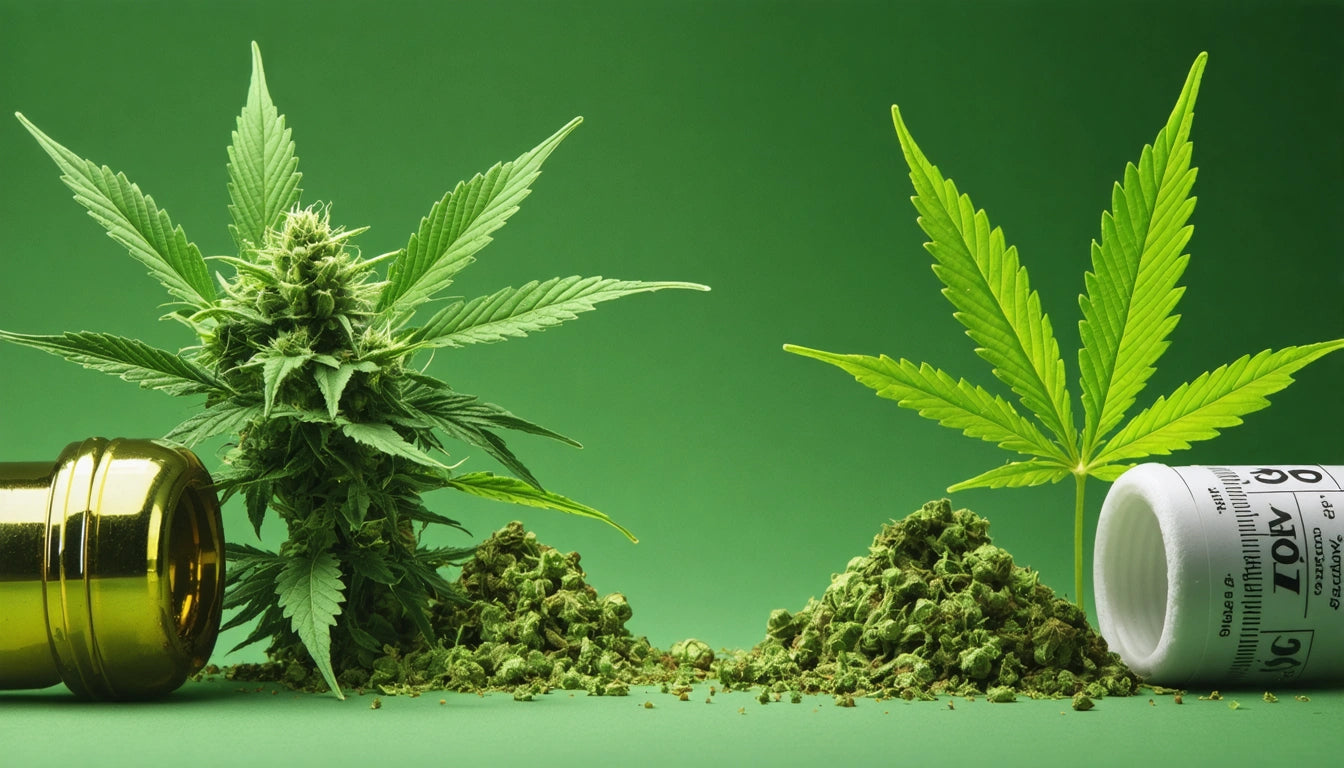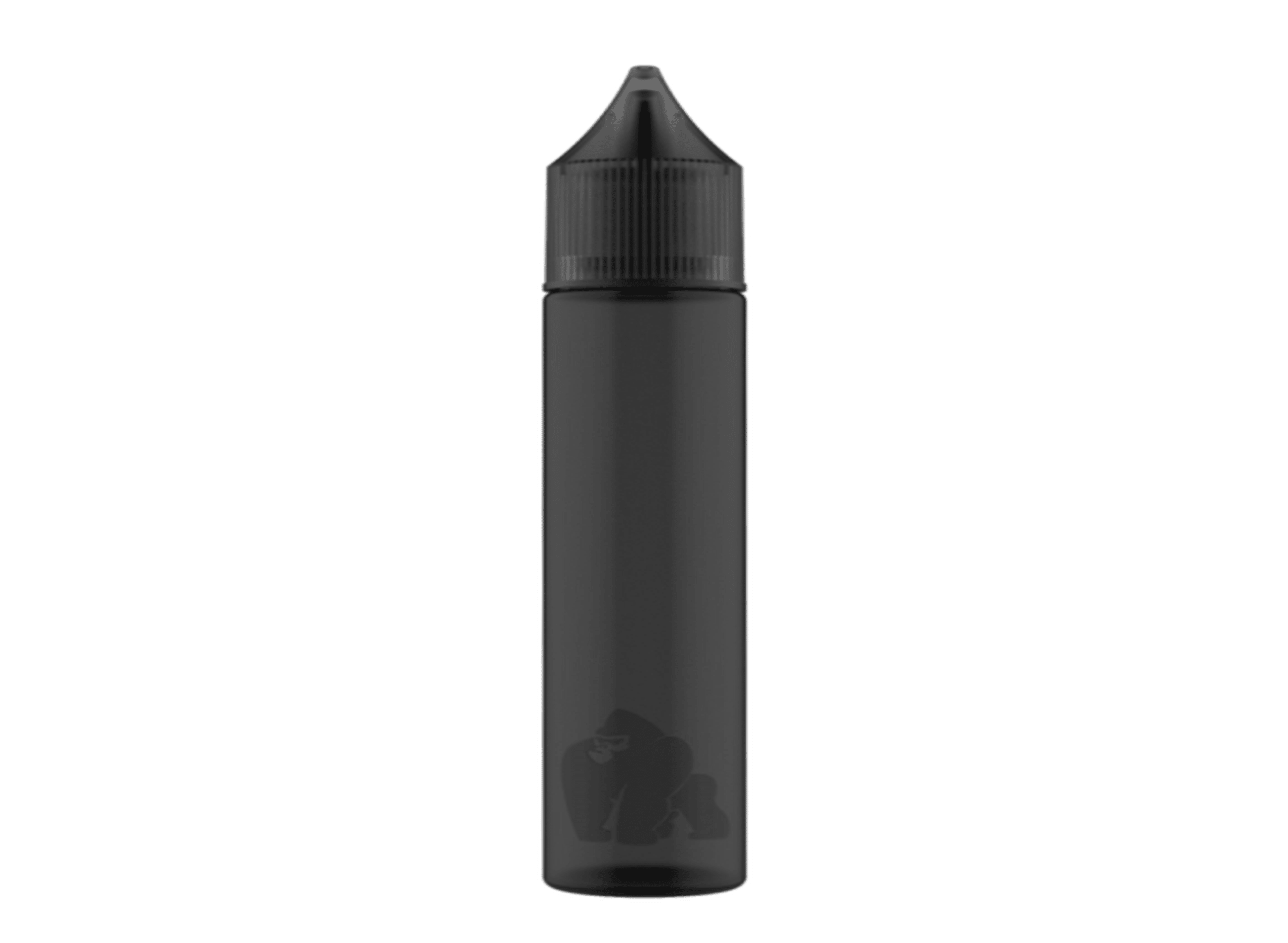Table of Contents
- THCA vs THC: Chemical Structure and Basic Differences
- Potency Comparison: Which is Stronger?
- Effects and User Experience: THCA High vs THC High
- Legal Considerations: Why THCA Remains in a Gray Area
- Other Cannabinoid Comparisons: THCV, THCB, HHC and More
- Practical Applications and Product Selection Guide
Understanding the Differences: THCA vs. THC and Other Cannabinoids
The cannabis plant contains hundreds of compounds, with cannabinoids being the most studied for their effects on the human body. Among these, THC (tetrahydrocannabinol) and THCA (tetrahydrocannabinolic acid) often create confusion due to their similar names but distinct properties. This comprehensive guide explores the key differences between THCA vs THC and compares them with other emerging cannabinoids.
THCA vs THC: Chemical Structure and Basic Differences
THCA is the non-psychoactive precursor to THC found naturally in raw and live cannabis. The primary difference lies in their molecular structure: THCA contains an additional carboxyl group (COOH) that prevents it from binding effectively to cannabinoid receptors in the brain.
According to detailed comparisons of cannabis products, this structural difference explains why raw cannabis doesn't produce intoxicating effects. When THCA is exposed to heat through a process called decarboxylation, it converts to THC by losing the carboxyl group.
This conversion happens when:
- Cannabis is smoked or vaporized
- Cannabis is cooked or baked
- Cannabis is cured for extended periods
- Cannabis is exposed to UV light over time
Potency Comparison: Which is Stronger?
When asking "THCA vs THC which is stronger," it's important to understand that potency depends on context. In raw form, THCA doesn't produce psychoactive effects, making THC technically "stronger" in terms of immediate psychoactivity.
However, as explained in this analysis of THC potency, THCA has higher potential potency since it converts to THC with approximately 87.7% efficiency. This means 100mg of THCA typically yields about 87.7mg of THC after complete decarboxylation.
For consumers seeking specific effects, understanding this conversion is crucial when selecting products. Many dispensaries now list both THCA and THC percentages on product packaging, which requires compliant packaging solutions with adequate space for detailed labeling to properly communicate this information to consumers.
Effects and User Experience: THCA High vs THC High
The user experience differs significantly between these compounds:
THC Effects:
- Psychoactive/intoxicating
- Potential euphoria and altered perception
- May help with pain, nausea, and appetite stimulation
- Can cause anxiety or paranoia in some users
- Potentially beneficial for sleep (especially in indica-dominant strains)
THCA Effects:
- Non-psychoactive/non-intoxicating
- Potential anti-inflammatory properties
- Possible neuroprotective effects
- May help with nausea without intoxication
- Being researched for potential therapeutic applications
For those wondering about "THCA vs THC which is stronger for sleep," research on conversion misconceptions suggests that properly decarboxylated THC typically provides more immediate sleep-inducing effects, while THCA might offer anti-inflammatory benefits that could indirectly improve sleep quality without intoxication.
Legal Considerations: Why THCA Remains in a Gray Area
The question "why is THCA legal but not THC" stems from legislative technicalities. Many cannabis regulations specifically restrict delta-9 THC content rather than THCA. This has created a complex legal landscape where products high in THCA may technically comply with certain regulations while still having the potential to convert to THC.
As discussed in this comparison of THC variants, the 2018 Farm Bill created a distinction between hemp (cannabis with less than 0.3% delta-9 THC) and marijuana. However, this legislation didn't explicitly address THCA content, creating the current regulatory gray area.
This legal distinction has led to the emergence of THCA products in markets where THC remains restricted. However, consumers should understand that heating these products will produce THC, potentially making them non-compliant with local laws.
Other Cannabinoid Comparisons: THCV, THCB, HHC and More
Beyond the THCA vs THC comparison, several other cannabinoids merit attention:
THCA vs THCV:
THCV (tetrahydrocannabivarin) differs from THCA in molecular structure and effects. While THCA is non-intoxicating until decarboxylated, THCV may produce mild psychoactive effects at high doses but potentially suppresses appetite rather than stimulating it.
THCA vs THCB:
THCB (tetrahydrocannabibutol) is a recently discovered cannabinoid with a different side chain structure than THCA. Early research suggests it may bind more strongly to cannabinoid receptors, potentially producing more potent effects than THC after decarboxylation.
THC vs HHC:
HHC (hexahydrocannabinol) is a semi-synthetic cannabinoid created by hydrogenating THC. The difference between HHC and THC lies primarily in HHC's greater stability and resistance to oxidation, potentially giving it a longer shelf life.
For a more comprehensive understanding of these variants, this guide on THC, THCA and THCB differences provides detailed comparisons of their structures and effects.
Practical Applications and Product Selection Guide
When choosing between products containing different cannabinoids, consider these factors:
- Desired Effects: For psychoactive effects, decarboxylated THC products are appropriate. For potential therapeutic benefits without intoxication, THCA products that haven't been heated may be preferable.
- Consumption Method: Smoking or vaping automatically converts THCA to THC. To preserve THCA, raw cannabis juicing or tinctures made without heat are necessary.
- Testing and Labeling: Look for products with comprehensive lab testing showing cannabinoid profiles. Understanding whether a product lists THCA or THC content helps predict effects.
- Legal Considerations: Be aware of local regulations regarding specific cannabinoids, as they vary significantly by jurisdiction.
The cannabis industry continues to evolve as research uncovers more about these compounds. What remains clear is that the relationship between THCA and THC represents just one facet of cannabis's complex chemistry, with each cannabinoid offering unique properties and potential applications for both recreational and therapeutic use.











Leave a comment
All comments are moderated before being published.
This site is protected by hCaptcha and the hCaptcha Privacy Policy and Terms of Service apply.